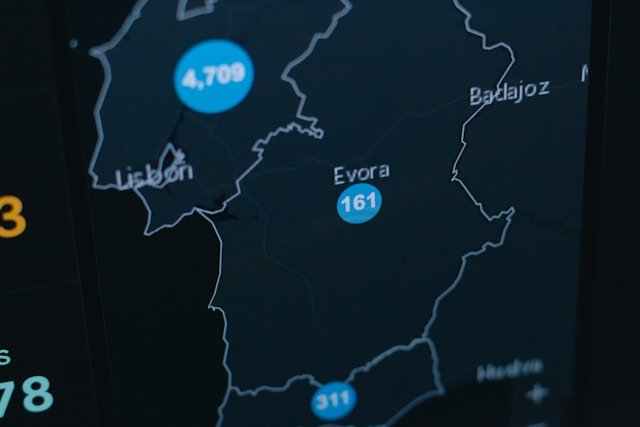14 Best Reasons NOT to Retire in Portugal !
Hello, I am Ismail Siddiky of Europe Diary. Here I am with another blog. If you are thinking of living in Portugal, then this article will be of great help to you.
Today I am talking about “14 Best Reasons NOT to Retire in Portugal! Don’t Live in Portugal!” Let’s start today’s blog.
Portugal is a sunny, friendly, and laidback southern European country on the Iberian Peninsula. It borders Spain and shares a lot of the characteristics of a Mediterranean country, but with its own unique cultural identity. It has great seafood, wine, ancient history, and architecture, and of course, it’s famously known for its beautiful beaches. You can stroll through the narrow streets, take a dip in the sea, and walk through the great valleys covered with olive and almond trees, all while getting drunk on the local wines. You’ll definitely be rewarded with some charming fairy tale-like experiences. Portugal is packed with rich culture, history, and incredible cuisine.
Ok, wait, I’m getting way too carried away here talking about the great stuff. And it’s easy to do so because Portugal is widely known as one of the top places to retire, with tons of great and endless things to talk about. But the thing is, for many of these popular countries, you don’t really hear too much about the unpopular things—the less talked about things that are important to consider when deciding on living there.
So here it is, a blog on the 14 best reasons not to retire in Portugal. Now, there are points that could apply to any country, but let’s just focus on this one. There are some points you won’t agree with at all, but it’s all a matter of perspective, so you be the judge in the end.
Anyway, let’s just jump into the points from bad to worst, starting now.
Number 14: The Smoking.
When you walk down the street into the wind, you’ll sometimes be walking straight into a cloud of smoke—a kind of gift from a smoker just going about their day. But Portugal isn’t the only European country where smoking is common everywhere, and you’ll learn a new skill where you’ll learn how to avoid it by looking a bit ahead. Don’t you love those brown-stained teeth and the smells that come with it? It brightens your day every day.
Number 13: Lack of Long-Term Rentals.
Now, you’ll find that most people decide to rent first to get a feel of the place before they buy a home. But the problem is you won’t find a lot of long-term rentals, and it’ll be a lot more difficult to find one than you might think. The reason for this is that many of the places aren’t legally rentable for more than a month, and many owners don’t want to rent their properties in the winter because of the costs involved. So the alternative would be the expensive Airbnbs that know of this situation and take full advantage of it. But of course, even with the reduced prices for longer stays, it still ends up being pretty expensive anyway. I may have given you a business idea—not investment advice, of course.
Number 12: Driving.
Now, if you’re from California, the roads are super wide, good for those car chases. But if you look at the roads in Portugal, they usually tend to be super narrow, steep, and windy. On top of all of this, there are toll roads, where if you calculate all the costs, it could really add up. Also, you’ll notice that the driving styles are a bit shocking at first, but then once you understand why, you’ll start driving that way too. When in Rome, do as the Romans do. You’ll find people flashing their lights to get past you, drinking and driving, and rarely using indicators, and car accidents are frequent in Portugal.
Number 11: The Cold Ocean.
Now, a lot of people move to Portugal for the beaches but are surprised by just how cold the water is. You have to do a temperature check with your toe each time. You need to keep in mind that it’s not the Mediterranean Sea—it’s the Atlantic Ocean. But for many, it isn’t a big deal because most only go to the beach in the summer. However, this means that during the summer season, you’ll be competing for the water with other people, so you’ll need to deal with the crowds. But if you don’t mind that, then it’s all good. But it can make a difference if you were expecting to spend a lot of time in the water all year long.
Number 10: Noise Levels.
Now, if you live in an apartment in Portugal, it’s not unusual to hear your neighbors, and if they live above you, you’ll probably hear them walking around as well. This is usually in the older buildings, while modern apartments usually don’t have these noise issues. Just have your broom around in case it gets too loud around 2 AM so you can learn to strike that ceiling to calm the situation.
Number 9: Overtourism.
Now, tourism in Portugal has boomed, becoming one of the hottest destinations, attracting millions of people from all around the world. Cities like Porto at times are way too small to handle the volume of tourists that are visiting. With the streets being so narrow and the city being compact and small, Lisbon has become one of the hardest-hit destinations as well. While tourism is great for the economy, it’s led to other problems in the local housing market, putting a strain on public transportation and other services for locals and tourists alike.
Number 8: Salaries.
Compared to Western Europe, the U.S., Canada, and Australia, the overall cost of living in Portugal is pretty low, but so are the salaries. Now, if you plan on working in Portugal, for many of the sectors, the average salaries aren’t enough to afford a comfortable living—from a North American perspective of comfortable living anyway, that includes a lot of amenities. So if you want that better style of living, you’re probably far better off as an entrepreneur or working for a company outside of Portugal. That’s where the big dollars are. But you’ll find that a lot of people who move to Portugal actually bring their own money, in the sense that they either come as retirees with a pension, as freelancers or remote workers with clients outside of Portugal, or they start their own business. So while there are jobs in Portugal, unfortunately, the salaries are low, especially when compared to what most non-Portuguese people are used to. To get ahead in a lot of industries in Portugal, it’s all about who you know, and this is true in a lot of other countries, of course, but it’s especially true in Portugal.
Number 7: No Rush to Do Anything.
Now, for some coming from fast-paced and stressed-out countries like the States, where we all want to move out of (or am I exaggerating?), it feels like everything takes so much longer to do in Portugal. You’ll find that the queues at most places are super long, where you’ll see strangers so used to waiting around, chatting with each other, and even forgetting that there’s even a lineup. If you’re introverted, it may be hard for you, but from a positive perspective, it might force you to meet people for sure. Maybe that’s why the lines are so long in Portugal. I haven’t thought of it that way until now. The best place to find a relationship isn’t at the bars, but in the lineups.
Number 6: Always Carrying Cash.
Now, this is what many of us want—a lot of cash. But in Portugal, you’ll need a lot of it all the time. Whether you’re dealing with authorities, buying from a local shop, or going to eat at a restaurant, it’s always a good idea to carry cash around because many of the smaller places don’t accept cards, and this is because the signal isn’t strong enough for a card reader. Now, you’ll also be visiting those charming smaller towns where the ATMs will be your best friend. You’ll be able to actually do all kinds of tasks, like paying your electricity bill or even buying a fishing license. But it’s all about cash, cash, and ATM machines.
Number 5: The Bureaucracy.
Now, there’s a lot of paper—I mean, paperwork—everywhere to do. You’ll be doing hours of it, standing in queues just to achieve the most basic of tasks. But again, it’s a great way to find your future boyfriend or girlfriend. But joking aside, you’ll have trouble setting up your car insurance or even opening up a new bank account. Now, if you want to start a business or apply for planning permission, you’ll always need to deal with the bureaucracy, and there’s a lot of it. In Portugal, bureaucracy is thick and not fast, and information from public offices can also be inconsistent. They also like to feel important with those big stamps in their hands. There’s also no way to navigate it well. You’ll think at first that it’s as simple as filling out your paperwork and speaking to the right people. And if you knew which paperwork to fill out and which people to speak to, it would be perfectly fine. But in a lot of cases, you’ll be going in blind, ending up going there four times or more. Of course, depending on which procedures you have to perform at the bank, the public administration, the court, or other public/private institutions, it can take a while to complete. But of course, this is one of those points that isn’t unique to Portugal and is common in many countries.
Number 4: Cold, Gray, Damp Winters.
Now, what? This country enjoys 300 days of sunshine. Yes, it does, but the other 65 days aren’t so nice. Especially in the north, where it can get cold, gray, and damp. Yes, there’s no snow in the north, but it sure can feel cold. Some people have said that the coldest winter they’ve experienced is in Portugal. There are many old homes that don’t have central heating, and when the winter humidity sets in, it can make the winters feel very cold. I would highly suggest getting a good heater, having some firewood, or installing a fireplace, as that will help keep things warm. This may not seem like a big deal at first, but for someone moving from a sunny California beach to Portugal, it could come as a surprise. If you’re living further north, the winters can definitely get cold, so it’s worth keeping in mind.
Number 3: Abandoned Properties.
So there are abandoned properties everywhere. Some of the old buildings may be empty and dilapidated, especially in the rural areas. Now, some of the real estate is quite expensive, but there are areas in Portugal where it’s very affordable, but those are the areas where a lot of the properties are old and abandoned. If you’re someone who wants to buy a property in Portugal, you’ll want to think twice about where you’ll live. While abandoned properties are an eyesore for some, they could be a great opportunity for people who are interested in renovation projects. If you love the whole fixer-upper lifestyle, then this could be the place for you. But again, you’ll have to deal with a lot of paperwork to get it done.
Number 2: Isolation.
Now, what I mean by this is that some people want to be able to have a lot of social connections. But when you move to Portugal, especially in a small town or a rural area, you might feel isolated from friends and family. Many people who retire to Portugal talk about how it’s not always easy to meet new people. The key is to always try and integrate into the local culture, learn Portuguese, and put yourself out there. Another way to combat isolation is to use Facebook and Meetup groups, as these will allow you to meet other expats living in Portugal. But of course, it can still be quite difficult.
Number 1: Language Barrier.
Now, you’d think you could get by with just English, and you’d be right if you’re staying in the cities or the tourist areas. But once you start moving to more rural areas, you’ll quickly realize that English isn’t so widespread, and it’ll be really helpful if you pick up some Portuguese. You’ll need to know Portuguese when dealing with bureaucracy, reading your mail, making a doctor’s appointment, or opening up a bank account. The language barrier can make it really difficult to integrate into society, especially if you’re dealing with official matters, and it’s definitely something to keep in mind. Now, there’s a good chance that the official you’ll be dealing with knows English but won’t speak it to you. Some people think it’s disrespectful not to learn Portuguese, and they don’t like dealing with people who can’t speak their language.
So, there you have it! Those are the 14 best reasons not to retire in Portugal. Every place has its pros and cons, and Portugal is no different. If you’re still considering retiring in Portugal after reading this, you might just be ready for the adventure.
Thanks for reading, and don’t forget to share your thoughts in the comments below. See you in the next blog!


